Here’s Your Passion and Your Virtue, Based On Your Enneagram Type
Have you ever wondered if you were susceptible to one of the 7 deadly sins? Do you ever wonder if you’ve got everyone fooled into thinking you’re a “good” person, when deep down you’re aware of some faults you’d never want anyone to know?
Today we’re going to look at the “passions” of the 9 Enneagram types. These passions are in many ways similar to the seven deadly sins. These passions show us where we have a tendency to “miss the mark” or limit our progress in life. When we get fixated on these passions and wrapped up in satisfying them, we lose our ability to be whole, to be healthy, and the best that we can be.

But Why Do We Have Passions?
No one has a perfect childhood. Most of our parents tried their best, but it’s impossible to have a childhood that is 100% idyllic and supportive from beginning to end. Life just doesn’t work that way. At some point in our story we internalize a belief. We may not tell everyone we have this belief, but we feel it, sometimes without even unpacking it in our own minds.
This belief is that it isn’t safe for us to be who we really are, so we must alter our outer presentation in order to survive or thrive. These alterations turn into a type of “vice” or “passion” that controls us. Instead of us wielding our own lives from a place of self-awareness and clarity, many of us are ruled by our passions without even knowing it. You can get a glimpse of the childhood struggles that led to these passions in the infographic below:
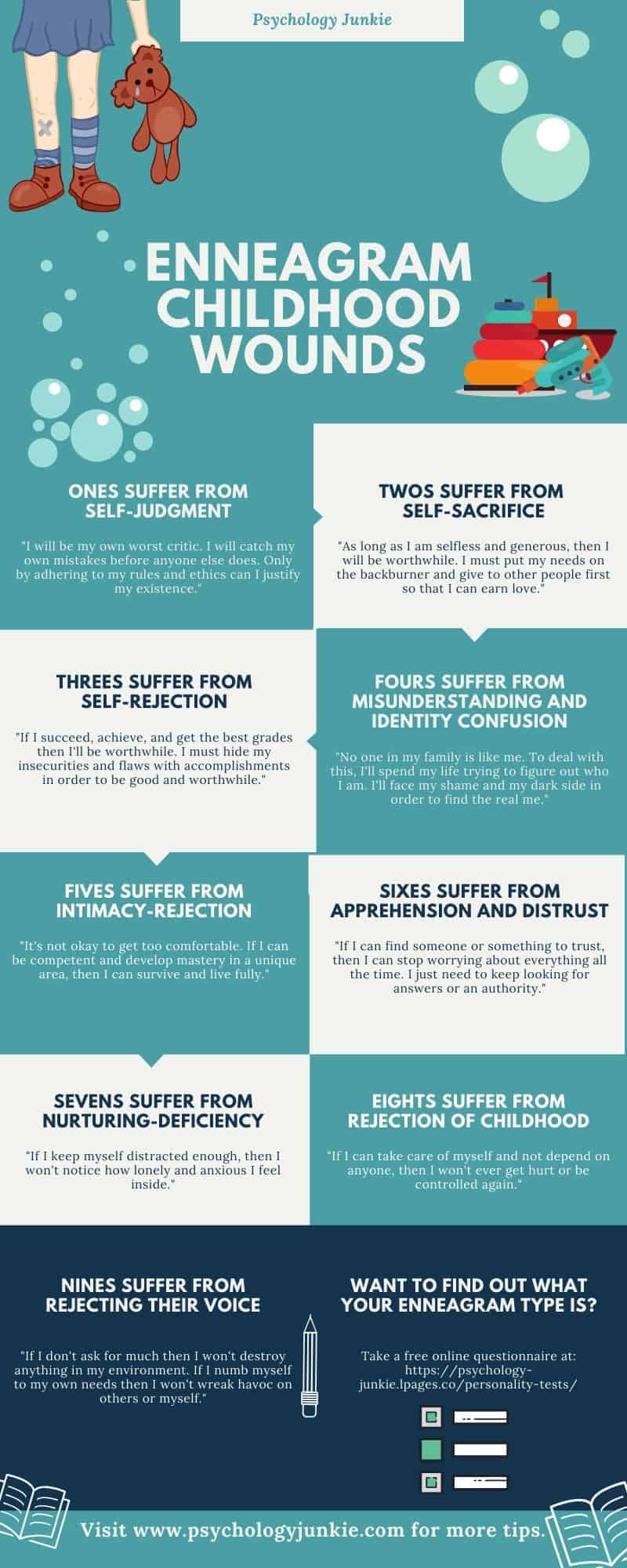
Figuring out who you are and what your Enneagram type is can be a lot of fun. But unmasking your passion can be a difficult process. However, it’s key to really taking control of your story, letting go of limiting beliefs, and living for the person you were truly meant to be.
With that introduction, let’s move on to exploring the passions or vices of each of the nine Enneagram types
The Passions of the Nine Enneagram Types
Table of contents
Estimated reading time: 26 minutes
Enneagram 1: Anger
You might be shaking your head at this. You? Angry? But you keep everything under such tight control! Sure, you might not be flipping tables and yelling at people who bump into you on the street. But you’ve got a simmering anger on the inside that tends to show up as resentment.
Sometimes it might be better for you to blow off some steam and vent, but instead you hold it in, repressing it, letting it feed and grow into a bubbling, invasive resentment that makes you dissatisfied with yourself, the world, and the people around you. You probably sense this as continual, chronic frustration.
Ever find yourself condemning yourself or others? Do you ever feel like the world around you is just corrupt, evil, or bad? Because of this, you pour your energy into “fixing” things. Whatever doesn’t match your ideal of how the world should be is under your microscope.
Sometimes this leads you to doing amazing things: Cleaning beaches, helping out a neighbor, speaking out against injustice. But sometimes it means you find yourself in an endless cycle of blaming, criticizing, and finding fault. And it isn’t just with others. It’s with yourself too. Because deep down you worry that you’re not good enough, not moral enough, not virtuous enough.
Enter Serenity…
This is what you really want. Yes, you want to feel good enough, righteous enough, competent. But at the same time, you want to finally feel peace. You want to breathe for once, instead of holding in frustration and stress and disappointment with the world.
This is where acceptance comes in. Freedom. Knowing that you can’t control it all and accepting life for the roller coaster it is. It’s hard to let go, to make this big step. But it’s worth it.
It may feel counterintuitive (there’s so much to do!) but take some time every day to breathe, become mindful of the present, and visualize something that gives you a sense of calm and serenity. Find ways to not “sweat the small stuff” and realize that certain things are out of your control. Know when to let go and which battles are worth fighting.
There may be big pains in your life. People you love who are following the wrong paths. Remind yourself that you can only control yourself. Don’t give up on the things that matter to you, but give up on the feeling that you have to control them and if things go off the rails it’s somehow your fault.
Find out more: What You Need When You’re Overwhelmed, Based On Your Enneagram Type
Enneagram 2: Pride
You’re someone who gives generously of everything you have to offer most of the time. If you’re like most Twos, you find yourself putting others first the bulk of the time. So why pride? You might be thinking, “But I don’t even think of myself! I’m always thinking of others!”
So here’s the tough part: The pride is in believing that the part of you that gives generously, that cares, that reaches out, that is needed, is all there is to you. Many Twos come to believe that others would be lost without them. They identify with their generous deeds, seeing themselves as benevolent and selfless and kind. And while that might be true, they can get a little high-and-mighty about it.
Rather than looking inward towards your motivations, desires, and spiritual core, many Twos look outward at their deeds, at how indispensable they are. If you’re a Two, you may try to make yourself needed, the one confidante, the one people can count on.
But what about you? There’s more to you than being a giver. You’re not just Santa Clause and Mother Teresa wrapped up into one Messiah-like entity of benevolence. Underneath all your generosity and good advice and empathy is someone who wants to be needed. There’s somebody who wants to feel worthy of love, and the way you’ve learned to do it is to give until you’re completely empty.
You deserve better than that…
Enter Humility…
Okay, I’m going to admit I feel really preachy right now. But here’s the thing. You need help sometimes. Yes, you give and give and give. But eventually you’re going to run out of abundance to give from because you’re neglecting yourself in the process.
It feels good to be the giver. It feels weird to ask for help. Believe me, I’ve been a “don’t ask for help”-er for many years. It’s humbling to ask for help, to admit you don’t have all the answers or all the resources. It can feel like people might be judging you. It takes humility. The strength to say, “I need you right now.”
But here’s the truth: You are just as worthy and important as anyone else. Love is something you deserve because you’re a human being with inherent worth. You don’t have to be the perfect confidante, the indispensable person that others need to survive. You just need to be you, all the beautiful and messy parts of you.
Look at your motivations. Yes, you’re giving, but is it giving because you want love/adoration/generosity in return or is it giving because you simply want to give?
If you could accept that you are worthy of love just as you are, even with your messy motivations (we all have them), then you could enter a new level of true peace. Rather than chasing after a feeling of being needed, you can know that you’re enough. You can also have the self-awareness to sense when you’re giving to get, versus giving out of a pure desire to improve someone else’s life.
Discover more: Escaping the Trap of Flattery for Enneagram 2s
Enneagram 3: Deceit
We all know that you’re a hard worker, that you’re ambitious, goal-oriented, and competent. You probably have worked hard to maintain that image and to be all that you can be. But do you ever feel like you’ve lost touch with who you are on a deeper, core level? This is where your passion, Deceit, comes into play.
Deceit, or deception, is often described as a way to manipulate or fool others. What we’re talking about here is self-deceit. Threes struggle with knowing who they really are because they over-identify with their accomplishments and actions and image. The outer persona becomes everything. “I am charming,” “I am competent,” “I am successful,” “I am beautiful.” These goals and aspirations keep them running on a treadmill that never reaches an end point.
Vanity, the belief that the outer you is the one real you, can be your downfall as a Three. And underneath all that is a vulnerability, a fear that without outer recognition and success you are nothing. You might believe that you have to earn love, that you don’t deserve it unless you can perfect your outer image.
Over time, this can lead to a feeling of emptiness, despair, unworthiness, and exhaustion. You might wonder who you really are, and whether the “you” that other people claim to love is really you at all or just the mask you’re wearing that you thought they wanted to see.
Enter Veracity…
I honestly had to look this word up in the dictionary the first time I read it. Good ol’ Merriam-Webster describes Veracity as, “Devotion to the truth” or “Conformity with truth or fact.”
How does that apply to you? Veracity for you means stepping off the treadmill. It means sitting down on the floor (or curling up in the fetal position, we’re not judging) and looking inward. Who are you, really? When the masks are off and the chips are down who are you really? What do you stand for? What is the truth of you?
This process can seem scary. What if you don’t like what you see? Taking an honest look at your own motivations and your own spiritual core can be scary. But we’re all messy. We all have delusions of grandeur at times or hide away from our true motivations. I bet every one has some dark secret they’re desperately hiding from the world (I mean, have you seen Inside Out 2?!)
But veracity isn’t about looking at yourself and feeling like an absolute jerk. It’s about looking inside and accepting your authentic self, warts and all. It’s about being content to just “be” and not feel like you have to hurry up and get back on that treadmill and try to be whatever you think the world wants you to be.
Yes, veracity and authenticity can feel weird at first. Maybe the mask looks better on you to strangers when you’re walking down the street. But what you want is real connection with yourself, real love for who you are, and not just what you accomplish. You also want genuine relationships built on a foundation of authenticity and trust. And veracity is the way to get there. Be strong, Threes. You’ve got this.
Find out more: What Your Inner Child Needs to Hear, Based On Your Enneagram Type
Enneagram 4: Envy
Oh no, my own Enneagram type. Can we just skip this and move on to the 5? No? Okay, let’s get started…Brace yourselves, Fours…
So if you’re a Four like me, you’ve probably always felt like something was missing in your life. You might look around you and feel like everybody else has got things figured out, or they have something, anyway, that you don’t have. Maybe it’s a relationship, a friendship, a job, a creative hobby, financial security, the list goes on and on.
But you? You often feel like you’re an outsider. I personally feel like I’m on a perpetual journey to places where I don’t fit in, where nobody understands me, and where if anyone DID get to know me well enough, they might cringe or run away scared.
I mean, you’re probably way cooler and more charming and entertaining than I am…oh wait, that’s me giving into my vice: Envy. Forget it. Let’s move on…
Fours like us tend to look directly at our shame. The things about us that make us different, less than, odd, quirky. We’re self-aware to a fault. Most of us are painfully aware of what makes us deficient or lacking. Ugh. It’s an awful cycle.
This leads us to envy, our passion, our vice. Gee, it’d be so nice to be like our neighbor who seems to have the perfect friend group and wears fancy clothes and is the perfect weight! I bet they’re super happy and fulfilled. Or it would be even better to be like our friend, let’s call her Jane, who is in that amazing relationship with that guy who totally gets her.
As a Four, we can find ourselves envying people for all the things we perceive that they have that we lack. We feel like something fundamental is missing within us and that we must find it at all costs.
Enter Equanimity…
Yay! Another word I had to look up in the dictionary. Merriam-Webster calls Equanimity, “Evenness of mind especially under stress.” The Cambridge Dictionary calls it, “A calm mental state, especially after a shock or disappointment or in a difficult situation.”
That all sounds really nice and everything, but why and how are we supposed to master this evanescent talent?
The first thing kind of sucks, to be honest. This practice involves realizing your feelings are not facts. Yes, we sometimes feel deficient, but is it true? Yes, our neighbor looks like they’ve got it all, but do they? The truth is, we don’t actually know.
Our neighbor could have a bunch of “friends” who are sycophants and only show up because he cooks amazing food and knows how to throw a raucous party. But at the end of the day, maybe he feels like nobody really knows him.
Or perhaps our friend Jane is suffering from grief because her dad died last year and she doesn’t know how to talk about it.
Our feelings might be telling us we’ve got it worse than other people, or we’re more flawed than other people. But the facts are that everyone has problems, and everyone has ways in which they feel “not good enough.”
The truth is, maybe, just maybe, we’re enough as we are. Maybe we’re *gasp* like other people, and not so different at all really. I can feel your cringe from all the way over here.
When you feel yourself starting to get wrapped up in envy, comparisons, negative spirals of despair, stop and ask yourself, “What do I know for a fact to be true?” Take a few moments and meditate, if you can. I personally suck at meditating. I always recommend it because the experts say it’s amazing, but I’m going to admit I don’t really do it. Maybe writing this post will kick me into gear and I’ll finally get started.
But enough about me. Getting grounded in your body is key. As a Four it’s easy to end up in a spiral of melancholy despair and self-disparagement. Take a walk in the woods (this I do actually do), notice each texture, notice your body, your breathing, the sights, sounds, textures, breezes. Focus on what’s real versus the feeling you’ve conjured up without even trying to. In this grounded awareness and calm you can more easily reach that equanimity you crave.
Take time to bring peaceful activities and groundedness into your life. Make time for casual creativity with no agenda. Show up for others and yourself without comparison. Or, if you’re like me, maybe take a few minutes to meditate or try out that Calm app (I hear you can listen to Cillian Murphy talking about Ireland so it might be worth it).
Discover more: The Lie That Each Enneagram Type Believes, and How to Avoid It
Enneagram 5: Avarice
If you’re a normal person, you don’t hear the word “Avarice” a lot. I mean, maybe you do and I’m just weird. But from my experience, you’re more likely to hear the word “greed” than avarice, and both are fairly synonymous.
Merriam-Webster defines Avarice as, “Excessive or insatiable desire for wealth or gain.” And Cambridge Dictionary defines it as, “An extremely strong wish to get or keep money or possessions.”
Now if you’re like me you’re probably imagining the Enneagram 5 like a king surrounded by mountains of gold, or, better yet, Smaug from The Hobbit, hording gold in his lonely mountain.
Or maybe you’re not a nerd.
But let’s move on…
If you’re a Five, avarice doesn’t necessarily mean being greedy for gold or wealth (although you could be, who knows). It really means that you hold tightly to yourself, your time, your space, and your resources. You don’t want anyone barging in on you and making demands. If you’re in the middle of a project, be it studying, writing, or just sitting and thinking, and someone intrudes into your space, it feels like nails on the chalkboard of your mind. So many Fives pull away, withhold themselves from the outside world, and keep everything contained within their habitat.
You may have felt yourself cutting off outside help, nurturance, or resources simply so you wouldn’t have to push energy outside of your sphere. For example, I knew a Five who would barely eat anything just because he didn’t want to go to the store and have to face shoppers, lights, and external stimulation.
You might feel like you don’t have enough resources inside yourself to handle external demands. People are “energy takers” to you, and you worry that if you expend too much on them you will be completely drained of all energy. So the avarice you experience is an overwhelming desire to pull in, to contain yourself and your space and resources so that others won’t rob you of your energy.
The downside? In the process, you might find yourself alone, devoid of any nurturing relationships, fearful and skeptical of the world outside. Fives are ingenious, and you probably are too. But there may be a fear that you’ll never know enough to face the outside world. Anxiety builds, you pull away, and long-term this can lead to isolation, fearfulness, and inaction.
Enter Non-Attachment…
Now if you’re like me, when you first heard non-attachment you thought, “This isn’t a problem for me! I’m not attached to anyone!” But that’s not what this form of non-attachment means.
Here we’re not talking about pulling further away from people and experiences. Instead, we’re talking about letting go of the need to protect your resources with such a tight fist. You can be so protective of your items, your space, your energy, worrying that you’ll be completely decimated by external experiences. But it’s not the truth.
Yes, you might get exhausted after socializing for a few hours. But this doesn’t mean you should never socialize. You might also find yourself meeting someone who could be a potential lifelong friend.
If you can let go of your tight hold on your space, time, and energy, you will find that you have an abundance of generosity and competence and strength. You’re not on the verge of impending impoverishment. Your experiences will not destroy you; in fact, they’ll help you to get in touch with all the amazing things you learn by your very nature. Practice letting go of your resources, little by little, and realize that there is abundance still.
Find out more: How to Overcome Self-Doubt, Based On Your Enneagram Type
Enneagram 6: Fear
Do you ever find yourself spiraling into worst-case scenario thinking simply because one little detail seems out of synch in your life? Enter fear. The average Sixes constant companion.
If you’re a Six, you find it difficult to stay present in the moment. Instead of walking through the woods enjoying the crispy crunch of the leaves under your feet or the smell of an autumn breeze or the sound of birds singing, you’re thinking to yourself, “I saw a rustle over there in that bush. What if there is someone lurking behind those trees up ahead, ready to jump out and strangle me? What will I do then? Did I bring my mace? I need to revise my will!” And this kind of thinking is always there, like an overly-clingy parent who’s trying to “protect” you by reminding you of all that could go wrong.
This constant anxiety is a bummer. It’s not like you don’t want to enjoy your afternoon walks! Your fear just won’t let you stay present because it’s always busy alerting you to danger. And you think to yourself, “If I ignore this, THIS will be the time something bad happens.”
So you go through life in a constant state of apprehension and stress. You try to find answers or support in community, guidance by mentors, friendships, or maybe you just hurtle yourself into dangerous scenarios so you can try to prove to yourself you can handle it (I’m looking at you Sx 6s).
But all this anxiety is exhausting. You might wish you could be like the people you know who sit back, relax, and enjoy the little pleasures of life. But you might feel like when you try to do it, your mind becomes filled with disaster scenarios.
Enter Courage…
Believe it or not, for someone who is constantly followed around by anxiety, your virtue as a Six is actually courage. Once you realize you have the power to be your own guide and that you can be the leader of your own life, you’ll realize you do have a depth of courage available within you.
But I know that sounds way easier than it actually feels. “Just be brave!” is so easy to spout out, but much harder to actually internalize. So you’ve got to start small…
The next time you feel like outsourcing your support, look inside yourself and reassure yourself. It seems cheesy, but positive self-talk actually works. In fact, in a 2020 Iranian study, it was discovered that positive self-talk affected how people coped with anxiety during the pandemic. People who used positive self-talk had less anxiety and fewer symptoms of Obsessive Compulsive Disorder (OCD).
So yes, saying cheesy stuff like, “You’ve got this!” “You’re gonna be okay” or “Just breathe. You’re strong and powerful” actually does work. Because when you say it out loud your brain processes this the same way as if someone else had actually said it. And the more you tell your brain that you’ve “got this,” the more your brain starts to believe it.
But that’s not all. Practice deep breathing. It’s amazing how much we can take control of our stress by changing the way we breathe. Next time you find yourself panicking or imagining a worst-case scenario, close your eyes (unless you’re driving), take a few big, deep breaths, and as you breathe in, imagine that the air is filled with little peace-giving bubbles that are flowing through your whole body. Breathe out, and imagine that you’re letting go of all your stress, worry, and tension you’ve been carrying around. When you breathe like this, your body starts to tell your brain that it can chill out and calm down. It’s going to be okay.
And yeah, I know, as a Six right now it probably doesn’t feel like it’s going to be okay. It may even feel irresponsible to stop worrying. But the truth is, your inner courage is going to be a much better friend to you than that anxiety pal. Yes, anxiety is trying to protect you, but courage will do a better job of it overall.
Find out more: Healthy vs. Unhealthy Enneagram Types
Enneagram 7: Gluttony
You’re the fun Enneagram type! The one that everyone counts on for a good time, for a sense of possibility, and for a positive spin on any bad situation. I kinda hate to talk about your vice because you’re so likeable.
But the thing is, underneath all that fun, entertaining exterior, you have an insatiable hunger for new experiences and pleasures. While we often think of gluttony in reference to food, for you, it could be over-filling yourself up with entertainment, shopping, adventure, parties, spontaneous road trips, wine, or whatever feels exciting and inspiring. And while these things aren’t bad in and of themselves, they become a passion or “vice” when they are constantly pulling you away from your own heart.
Deep inside, you do have anxiety and grief that wants to be reckoned with. But instead of facing these things, you seek distraction. “If I’m having fun, I don’t feel grief or fear. And if I don’t feel grief or fear, then I’m happy. Then I’m good.”
But over time, this thinking can lead to escapism, emptiness, and an incessant hunger for distraction that can never truly satisfy.
Enter Sobriety…
Sobriety is about quieting down, breathing, and letting yourself pause. It’s about getting off the hamster wheel of excitement-seeking and being fully present.
In the quiet of the moment, in the stillness, look inward.
What are you looking for?
What are you trying to avoid?
Be curious about your feelings. Many times, Sevens process their feelings incompletely. Instead, let yourself be bored. Let yourself sit with the discomfort of your feelings and curiously ask questions to get to the root of your emotions.
When you slow down and process your feelings completely, you come out the other side with more wholeness and authentic joy.
When you stay tapped into the joy and beauty of the present moment instead of imagining the next exciting adventure, you develop more inner peace and contentment and true satisfaction.
Constant distraction isn’t joy. Frenetic escapism isn’t joy. The only way to real joy is through completely processing your emotions and being more in touch with each moment’s beauty, meaning, or even its sadness.
Discover more: The Emotional Patterns of Each Enneagram Type
Enneagram 8: Lust
Lust for the 8 is about a desire for intensity, control, and potent experiences. It’s a hunger to “ramp things up” and to push boundaries. You could say, “If anything’s worth doing, it’s worth overdoing.”
As an 8 you push yourself to the extreme. You want to have a sense of power, control, and passion. You’re not irritated, you’re furious. You don’t have quietly do your duty at the office, you’re leading the whole team. You’re not attracted to someone, you burn for them.
There’s a reactivity in this desire for intensity. A need not to contain yourself or bottle up your reactions, but to give your intensity voice and power. You want to push people beyond their comfort zones to be their best. You want to do the impossible and beat the odds and be the one in charge.
No one is going to overpower you, manipulate you, or get the upper-hand on you.
And what’s wrong with that?
The truth is, each of our passions are protecting us from something. We don’t just have these vices for no reason. For you, the desire for intensity is about protecting yourself from manipulation, unfairness, or control that could hurt you.
The problem is, when you let this desire for intensity consume you, you can wind up intimidating people, damaging relationships, or becoming vengeful and overly-aggressive. People you love might become afraid of you rather than feeling comfortable with you. And the protective, kind side of you might never see the light of day.
Enter Innocence…
I can sense your discomfort. Innocence sounds naive, vulnerable, child-like and at risk of being hurt. This is the opposite of what you strive for.
But here’s the thing: Innocence, openness, and vulnerability takes courage, passion, and power. It is not easy to be open, to share your struggles, to be non-reactive and hold space for understanding. It takes strength, willpower, and bravery. And the rewards are immense.
When you let yourself be open and vulnerable, you invite others to do the same. You can create deep, trusting relationships where people feel safe being themselves around you. And when you let go of needing to control everything and everyone, you make room for true connection and intimacy.
You don’t have to give up your intensity, but by embracing innocence and vulnerability, those qualities will become even more powerful and impactful.
So next time you feel the urge to blow up or overdo it, pause. Don’t compare what’s happening now to a past experience where you got hurt. Refrain from judging or expecting the worst from someone. As Yoda says, “Clear your mind must be if you are to discover the real villains behind this plot.“
If you come at situations with a pent-up need to prove yourself, overpower, and maintain the upper-hand, you’ll never reach intimacy and true connection. Yes, it’s cliche, but you need to get in touch with your feelings. If you don’t, you’ll be continually reacting based on them but in misdirected surges of anger.
Being vulnerable, open, and innocent allows you to bring others into your world. It helps you not to be alone, but to be intimately known. You don’t have to walk around with your heart on your sleeve, but you can ask for help, lean on others when you’re feeling down, and communicate openly and honestly.
Find out more about Eights: Why Each Enneagram Type Feels Trapped
Enneagram 9: Sloth
Don’t worry, Nines. I am definitely not saying you’re lazy. In fact, most of the Nines I’ve known have been really hard workers.
The sloth that we’re referring to here isn’t about lounging around eating cheetos and binge-watching Netflix. This sloth is about going to sleep to yourself and what’s happening in your life. It’s about not being in touch with yourself, and putting your energy into “keeping the peace” rather than standing up for yourself and, sometimes, what you believe in.
I’ve dealt with an unhealthy Nine for most of my life and this is how it showed up in her situation. Before you read, know that I am not saying you as a Nine would behave in this way. This is an extreme example, but it gets the point across.
The woman I know has spent decades of her life in a toxic relationship with a partner who has been unfaithful, angry, and emotionally abusive. But she has never confronted the person causing her harm. She’s never said “Hey, I don’t like this. It needs to stop.” At a certain point, her partner’s anger extended to her children, and still she didn’t say anything. Instead, she tried to smooth things over, focus on “the bright side,” and find comfort in spirituality and religious mantras when things went wrong. Never did she stand up and say to her abusive partner, “You are out of line.” I know. I asked her.
This is an extreme example. This is an unhealthy Nine. If you’re an average Nine, sloth might show up in not saying what you want for dinner when your partner asks. It might mean holding in your anger and being passive-aggressive rather than directly confronting the problem.
Anger is scary for you. It could cause all your harmony, inside and outside, to disintegrate and fracture. That’s the enemy you fear: Disharmony. And so you defer to others, hoping that if you do so, everyone will be okay, and thus you will be okay. You silence your voice when things go wrong for you instead of confronting others.
The problem with this is that it can lead to unhappiness, emptiness, and a feeling of always being taken for granted or unloved. Because you don’t love yourself enough to give yourself a voice, you believe others are incapable of loving you because they don’t know the real you.
Enter Right Action…
Right action is a call to you to awaken to yourself. Stop putting a blanket over the you that has needs, desires, and wishes. Stop numbing yourself to who you really are.
I’m going to put a really long quote here, but it’s worth reading:
“You are not who you think you are. You are not your fears, your thoughts, or your body. You are not your insecurities, your career, or your memories. You’re not what you’re criticized for and you’re not what you’re praised for. You are a boundless wealth of potential. You are everything that’s ever been. Don’t sell yourself short. Every sunset, every mountain, every river, every passionate crowd, every concert, every drop of rain – that’s you. So go find yourself. Go find your strength, find your beauty, find your purpose. Stop crafting your mask. Stop hiding. Stop lying to yourself and letting people lie to you. You’re not lacking in anything except awareness. Everything you’ve ever wanted is already there, awaiting your attention, awaiting your time.” – Vironika Tugaleva
By stepping beyond the comfort of inertia, by speaking up and finding your voice, you can become truly alive and self-aware and connected. Real harmony isn’t about numbing yourself to your own feelings and needs, it’s about awakening yourself and having authentic, honest relationships.
Rather than seeking to maintain the status quo for the sake of peace, take action to cultivate the life and the self you want. Use your voice when someone is unkind to you. Say “This isn’t okay with me.” Instead of making the meal everyone else wants, make the meal you want. Rather than deferring to someone else when it comes to deciding what you’re going to do with your life, take an active step towards the life that you as an individual want.
This is going to be hard at first. But breathe deep, stretch, and tell yourself that you are deserving of a voice and happiness, and that you will not let fear of disharmony hold you back from standing up for yourself and your own needs. Begin by finding small ways to assert yourself and then build on those successes until you feel confident in speaking up for yourself in all areas of your life. This is where true harmony lies.
Discover more about Nines: Signs That You’re Disintegrating, Based On Your Enneagram Type
What Do You Think?
Do you relate to your passion or your virtue? Do you have any personal growth tips for other readers? Let us know in the comments!
References:
The Wisdom of the Enneagram: The Complete Guide to Psychological and Spiritual Growth for the Nine Personality Types by Don Richard Riso and Russ Hudson (Bantam Books, 1999)


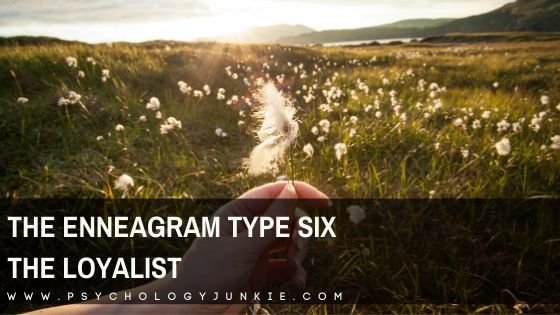


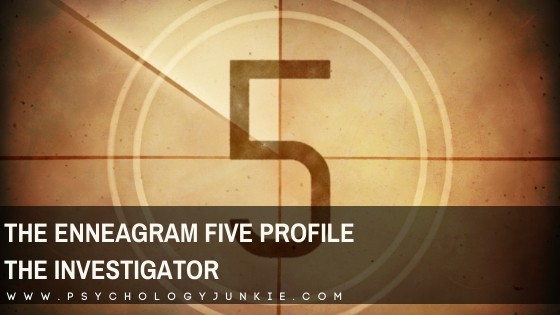




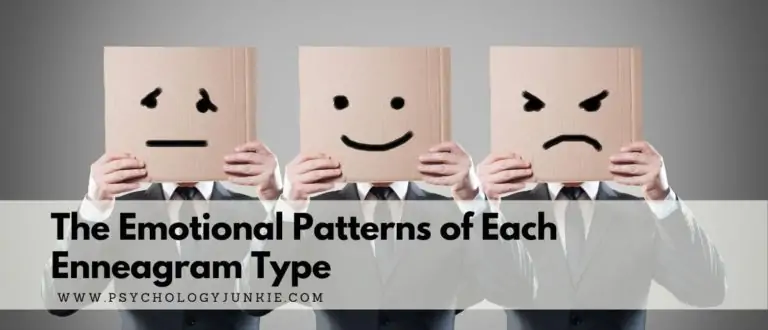
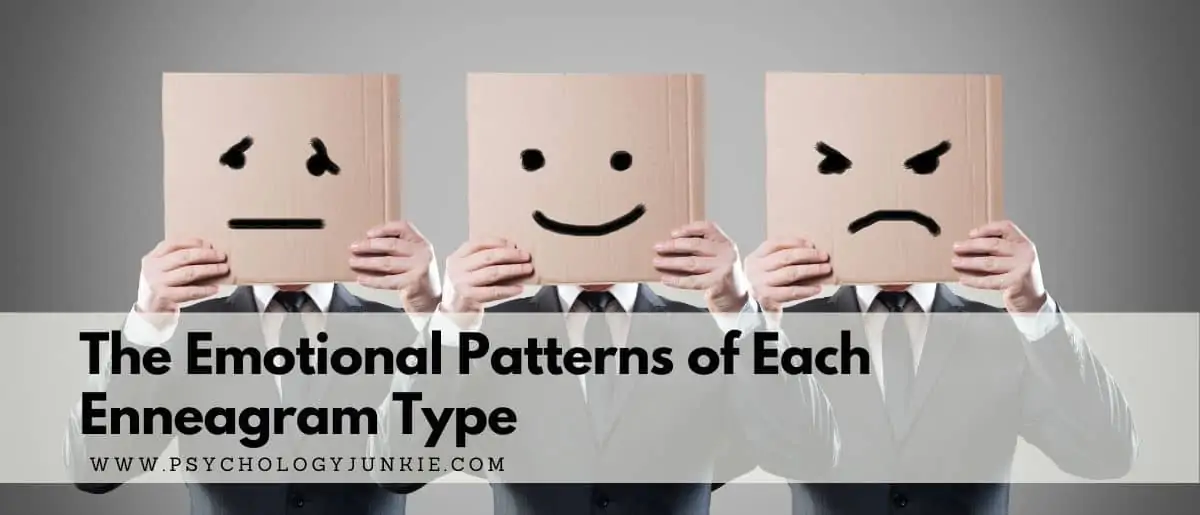
A masterful description of this topic. I love how you illustrate the points you make with examples I can relate to.
Advancing age has mellowed my reactions and responses. As an INTJ I can stand apart and at least try to evaluate myself and others as objectively as possible. (Enneagram 8 with a 7 wing. 5 figures in there also.) It becomes a baseline to communicate better and to be kinder. Life isn’t a Greek tragedy. I have to find fun in things, especially living in Latin America. Here the pace is slower and people are less exacting, especially about time. They don’t get in a snit about little things. Sooo, easy does it and take things as they come.
Thanks, Susan.
The enneagram type really confuses me. I got type a1 twice from the questionnaire from psychology junkie but from other quizzes I got a type 5. Both of these types really fit me especially the vices. It’s honestly scary
I can relate to the description of the 9. Causing disharmony feels overwhelmingly painful. But in order to do what needs to be done, I tell myself, “yes, it will be painful, there’s no denying it. So feel the pain and do it anyway because the feeling will not last forever, and you can then be a peacemaker by right action rather than a peacekeeper who stays quiet.” I know that’s a lot, and I still struggle, but I keep trying anyway.
Hi what would you consider to be the most private of the enneagram types. The types who don’t like to draw attention to themselves?
I would say the Five Enneagram type!
Thanks Susan! I can see myself in all the Enneagram types, which is confusion 😀. I have recently been reading Cron and Stabile’s The Road Back To You. Their suggestion is that if one relates to all Enneatypes, then one could very well be a Type 9. Something worth thinking about…